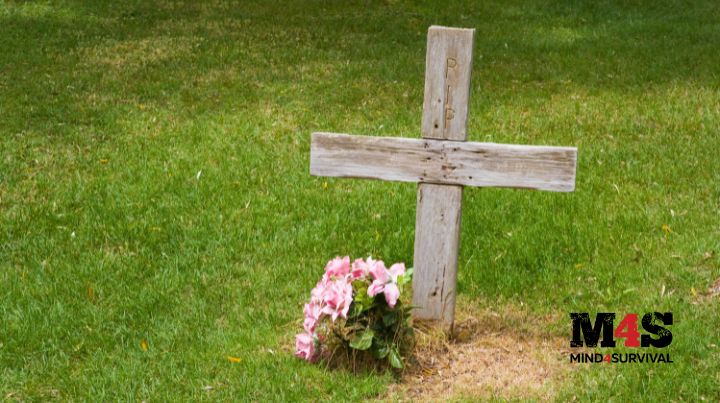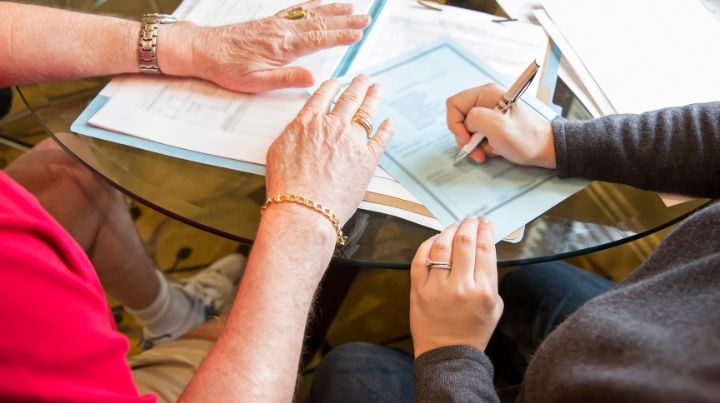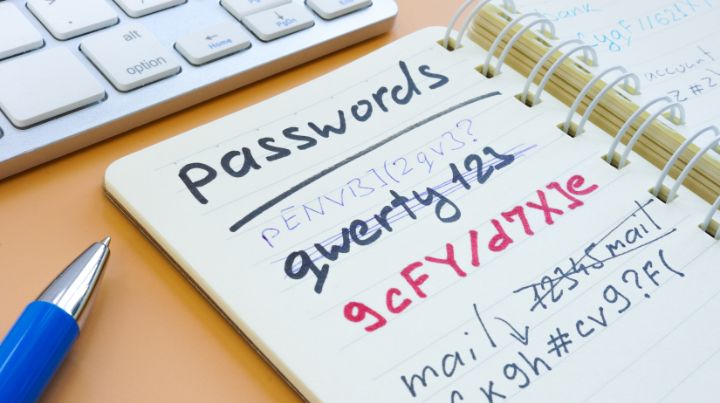The Death File

My dad passed away in 2019. It wasn't any sort of surprise, as his health had been declining for several months. I tried bringing up his last wishes and such a few times in the year or two prior to his death, and he wanted nothing to do with it. He told me where to find his will and said everything I needed to know would be there.
Turns out, not so much. There was a very bare-bones, two-page will, and that was it. My wife and I spent several months trying to get his affairs sorted out, with mixed results. It seemed like every week a new problem arose: a new account that needed to be closed, and a new repair required before we could list his house for sale. All while we were still trying to grieve for our loss.
I tell you all of that to tell you this. Don't do that to your family. Don't force them to have to muddle their way through all of that when they should be spending that time remembering you and working through their loss.
Instead, collect and collate all of the information that they'll need and keep it in one place.
The Death File
I know, it's a morbid name. But it gets the point across. You can call yours whatever you'd like. Some prefer “In Case of Death.”
There are several things that should be kept in this file. I recommend printing these out rather than just storing everything electronically.
Legal Documents
This is what most people initially think of when we talk about a Death File. Your Will, Power of Attorney, Living Will, other healthcare directives, and all that fun stuff should be present and accounted for. I recommend using an attorney to draw up these forms, if only so you don't forget anything that could prove important later. Pro tip – keep multiple original copies of the POA paperwork available. Something I found out when we were dealing with my dad's health issues was that many places demanded an original. Simple photocopies didn't suffice.
Until you get around to getting those forms official, consider at least leaving a note in the file as to your last wishes, such as burial or cremation, so that your family isn't forced to just guess and wonder if they got it right. Obviously, if you have pre-planned and/or prepaid arrangements for your funeral and whatnot, include that information.
For me, I've made it clear to my family that I wish to be cremated and to have some of my ashes scattered at a specific beach that holds many fond memories for me. It's also close enough to home that my family can easily visit and remember me, should they choose to do so.
Insurance Policies
Make a list of every insurance policy you have, including the policy number and the relevant contact information for filing claims. My dad a policy nobody knew about and I only learned of it when they did a file audit and discovered he'd died. The payout was very small, but if they'd not reached out to me, I'd have never known about it.
Bank Accounts
There should be a list in the file of every bank account in your name, including checking, savings, retirement, and such. You don't need to include balance information, but you should note the financial institution's name and account number, at a minimum. For standard bank accounts, you might consider adding the executor of your estate to the account. This way, they will be able to access the account without cutting through a lot of red tape.
If you have a safe at home, include the combination in your file. My dad had two safes, but only one of the combinations was written down. I ended up having to contact the manufacturer of the other safe and waiting a few weeks before I could get the combination to the other one.
Bills
Generate a list of every single account that is in your name. Examples include:
- Mortgage
- Vehicle loans
- Credit cards
- Utilities
- Gym membership
- Internet service
Instructions should be given to cancel as many of these accounts as possible after you've passed, particularly regarding how many may be set up to auto-pay from your bank account each month. If you're deceased, you really don't need anyone paying for your Planet Fitness membership any longer, right?
If you own your home, ask your attorney if a Transfer Deed Upon Death is an option for you. This will automatically transfer ownership of your real estate to the person you've appointed to receive it without having to go through probate. This can save your family thousands of dollars.
Online Accounts
Jot down the URL and access information for every online account you have, like email and social media. This way, your family can access information, such as responding to emails, as well as download your social media data. For many of us, those social media accounts contain photos that might not be available anywhere else.
Along these same lines, you might want to include the password to your cell phone so that your family can access it.
Contacts
Related to the social media information, make a list of every person you want your family to notify that you've died. I'd bet that most of us have people in our lives, especially on social media, who our families don't really know. Not because we're hiding anything, but because these days, we often have online friends who our families don't know. This list should have their names as well as their contact information. In my case, I've gone so far as to instruct a few friends that if they're notified that I've died, they're to make sure to spread that information along to various groups to which we belong. Don't forget about employers and coworkers, too. I work from home as a freelancer, and among the people on my list are the various editors with whom I work regularly.
Last Words
This is something that many never think to do, but could be so important to your family. Think about writing a note for your loved ones, letting them know how much you care about them and how proud you may be of them, that sort of thing. If you normally have trouble expressing yourself in this manner when you're face to face, this is an excellent way to tell them you love them, and it'll be something they'll remember forever. This is also a great way to help them find closure in your passing.
Storage
Make sure your family knows where to find your file. It doesn't need to be particularly elaborate, either. Stuffing it in the back of a file cabinet would probably suffice. That said, keeping it in a fire-resistant safe is probably a wise choice. Just make sure they know where to find the key.
Additional Resources:
- Emergency Binders: What Should Preppers Put in Them?
- Elon's Everything App: Friend or Foe?
- Crisis Communication Plan (The What, Why, and How)
- It's Time to Spring Clean Your Bug Out Bag ~ Here's How To Do It!
Don't Miss Out!
Join the thousands of people who rely on Mind4Survival preparedness advice by subscribing to our FREE newsletter.
- Practical preparedness information
- Zero Spam
- < 0.25% of people unsubscribe




Join Mind4Survival!
Stay informed by joining the Mind4Survival! 100% Secure! 0% Spam!
Follow Us!
Affiliate Disclosure
Mind4Survival is a free, reader-supported information resource. If you make a purchase through our link, we may, at no cost to you, receive an affiliate commission.




Storage: I have a problem with your recommendation ton having a “Death File” and putting it in a cabinet. Having a “Death File” was good. But storing it in your house? Your house could have a fire or get hit with a total destructive event such as a volcano, hurricane, wildfire, tornado, tsunami, etc. From what I read, a “fire-proof” is a description and is not regulated. Some gun cabinets list temperature and length of time that they are designed for. How will anyone know what conditions a fire will be in time and temperature? I have a Safe Deposit Box at my local bank and I think it only costs me $60.00 a year. I think that would be a better place for a “Death File” than keeping that information at home.